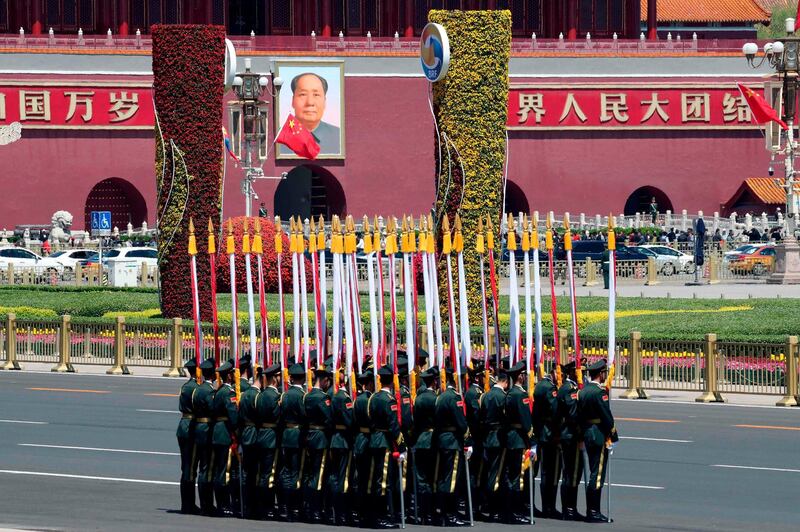There is little doubt that Chinese President Xi Jinping's flagship Belt and Road initiative will change the world. A project that, according to the World Bank, will encompass 30 per cent of global GDP and 62 per cent of the world's population is worthy of everyone's attention. A three-day forum began on Thursday in Beijing, bringing more partners than ever in to the project, despite a concerted effort to discredit the plan by western nations – chiefly the US, which is engaged in a strategic confrontation with China over trade and technology. Among the more than 5,000 attendees are Russian President Vladimir Putin, Italian Prime Minister Giuseppe Conte – the first G7 leader to endorse the scheme – and Sheikh Mohammed bin Rashid, Vice President and Ruler of Dubai. This is an opportunity for Beijing to sell its vision to the world, and an important moment for all the nations criss-crossed by the initiative. While such a vast and complex international project is bound to throw up various issues, the reality is that the Belt and Road initiative is bringing heavy investment to those who need it. Chinese Foreign Minister Wang Yi called it an alternative to "rising protectionism and unilateralism". At a time when many nations are building walls, there is much to be said for a programme based on cross-border co-operation.
The project combines a land "economic belt" with a "maritime silk road" to link China with the rest of Asia, the Arabian Gulf, North Africa and Europe. It will foster development and stability, while facilitating trade between nations. For countries in need of infrastructure and development, such as Pakistan, the Belt and Road initiative could be the ticket to a prosperous future. Some question whether fiscally weak countries will rack up unpayable Chinese debts. However, at the forum yesterday, China's central bank governor, Yi Gang, vowed to address these concerns directly. "We need to objectively assess developing countries' debt problems," he told an audience that included International Monetary Fund chief Christine Lagarde. Cynical views that the Belt and Road initiative is merely a tool of Chinese power and influence overlook the immense good it will do.
For the UAE, this initiative is the latest stage of a long and fruitful relationship. Indeed, the policy will see Abu Dhabi Ports and China Cosco Shipping construct new terminals along the Belt and Road's maritime routes. The UAE is increasingly looking east for economic and diplomatic opportunities, yet the ties between China and the Middle East date back to the 7th century, when trade in pearls and porcelain connected them. Today, China is the UAE's second-largest trading partner, with bilateral trade expected to exceed $58 billion this year. Sheikh Mohammed's attendance at the forum reflects the confidence placed in these indelible links, and the Belt and Road initiative, by the UAE. Realising the potential of trade and mutual prosperity to bring people together is much needed across the world.





